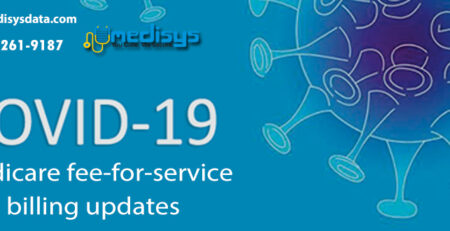Costs of health care have been rising over the past few decades, and consumers are seeking for different alternatives in order to minimize care costs. Some of the patients skip doctor visits and some of them consume generic drugs. Moreover, most of the patients ask for different ways to reduce costs. Owing to this, medical communities as well as technologies are thinking about telehealth as one of the cost-efficient alternatives over conventional health care.
Additionally, the COVID-19 crisis drives health care providers to shift towards telehealth at a rapid pace. Before the pandemic, the Centers for Medicare and Medicaid Services (CMS) restricted Medicare reimbursements especially for virtual services to a confined set of situations due to which patients are still needed to go out to avail health care services.
According to the American College of Physician Telehealth Survey 2020, about 24% of ACP members are utilizing e-consults on a regular basis. Moreover, it has been witnessed growing implementation of remote monitoring and remote care management technology. For a number of practices, telehealth is an unexplored category that has significant risks for reimbursement.
Health care providers must keep all the processes in line, which ensure the correct collection of documents in order to help billing and coding activities. By doing this, it will not only make sure billing compliance but also give a lift to bottom-line when it is required the most. However, implementation of telehealth can cause many challenges; let us understand one by one about telehealth reimbursement risks and benefits.
Telehealth reimbursement risks
Documentation Risk
As telehealth process is not tested from a claim rejection point of view and in the future, it is expected to face some sort of regulatory issues. Fundamentally, strategies should encompass everything, which occurs during patient visits such as evaluation, virtual examination, objective, and assessment of a patient.
The detail must mirror the thought process of what a provider is supervising and about the condition of patient. On the other hand, documentation while using telehealth must mirror visual and audio capabilities and contain patient’s consent proof to utilize technology (e.g. Skype, Zoom).
Important documentation risk areas, which can impress claim approval, are as follows:
- Length of conversation
- Emergency room or outpatient consultations
- Date, time and place of service
- Follow-up visits
- Appropriate use
- Follow-up visits
Misdiagnosis
As far as telehealth is concerned, the risk of misdiagnosis is greater as compared to in-person health care. Additionally, there are no stringent guidelines regarding telehealth hence quality of care may differ from provider to provider.
Misdiagnosis has the potential to increase the overall costs as it refers to incorrect treatment and prescription. As per the Centers for Disease Control and Prevention (CDC), one out of three antibiotic prescriptions is unnecessary.
Apart from this, if a telehealth service is unable to identify the diagnosis, patients may be recommended to visit the ER. If these visits are not required, patients as well as the general healthcare system could bear the extra cost.
Training and infrastructure development
Rebuilding responsibilities of your IT Staff and buying telemedicine equipment consumes time and money. Training is important to design an effective and efficient telemedicine program. Furthermore, restructuring your facility is a must for smooth telehealth implementation.
Medical staff, practice managers, and physicians require to be trained on a new system in order to make sure a strong return on investment. Telehealth enables to reduce your staff requirements that lead to minimizing the overall operational cost of your facility.
Payment and compliance regulations
One of the major challenges in telehealth reimbursement is inequality in payment. Reimbursement and coverage for telemedicine services might differ from in-person consultation. However, there is no constructive equipment to enforce payment parity law, which is passed in the 28 states.
This could violate the motto of telemedicine, which is to decrease health care costs and increase penetration of services, and dishearten providers from providing telehealth owing to the uncertainty of comparable payment. Reimbursement policies, healthcare laws, and privacy protection rules effort to maintain with this fast-growing industry. As a provider, you want to promote best practices when impending telemedicine.
Telehealth reimbursement benefits
Convenience
According to Cisco’s survey 74% of the consumers open to the virtual doctor visit. Addition of virtual care to your practice provides patients on-demand and simple care as compared to time-consuming and high-cost in-person encounters.
Telehealth could be a prominent tool in the remote locality; patients in such remote locations can easily access care as per their convenience. Tools such as online management systems, smartphone applications, and video conferencing engage number of patients with healthcare providers than ever before.
Healthcare savings and cost-effectiveness
Observing services, electronic health records, and remote analysis predominantly, decrease healthcare service costs and saves money for you, payers, and your patients. In addition to this, telemedicine also declines unneeded non-urgent ER visits and avoids transportation expenditures for routine checkups.
Apart from general cost-savings, telehealth can support in order to enhance revenue performance by attracting a large number of patients, turning on-call hours into billable time, and decreasing no-shows. Moreover, it is highly beneficial for healthcare providers who are willing to work under the work-from-home model.
Easy access to specialists
With the help of telehealth, patients from rural and remote localities have quick and more convenient access to specialists. According to the National Rural Health Association, in the U.S., there are only 30 specialists available behind 100,000 people; on the other hand, the number is quite bigger for an urban area that is 263 specialists. These patients suffer from appointment delays and lack of access to specialists for complicated diseases.
Telehealth provides greater access to a number of patients to multiple specialists. Apart from this, you can refer you, patients, to the particular specialist as per their requirement without location constraints.
Enhanced patient experience
When patients are dedicated to their personal healthcare goals, it results in reduced costs and enhanced health. Interacting with your patients via telehealth may help them to manage their appointments as well as care schedules.
With more engaging patient experience, you can guide your patients about different ways to live a healthy lifestyle. One of the major advantages of virtual visits, it assures patients about the involvement of providers in their treatments. Additionally, it makes much simpler for them to report early warning symptoms, reach out with questions, and schedule a follow-up appointment in order to ensure they are on the correct path.
If you are keen towards minimum claim rejection then outsource your billing and coding responsibilities. We are one of the prominent medical billing and coding service providers in the country. We have a dedicated team of coders equip with knowledge of medical billing and coding guidelines. Together we can avoid coding mistakes and revenue loss. With our billing and coding capabilities, you can effectively focus on your patients without stress. For more details, fill free to contact us.












